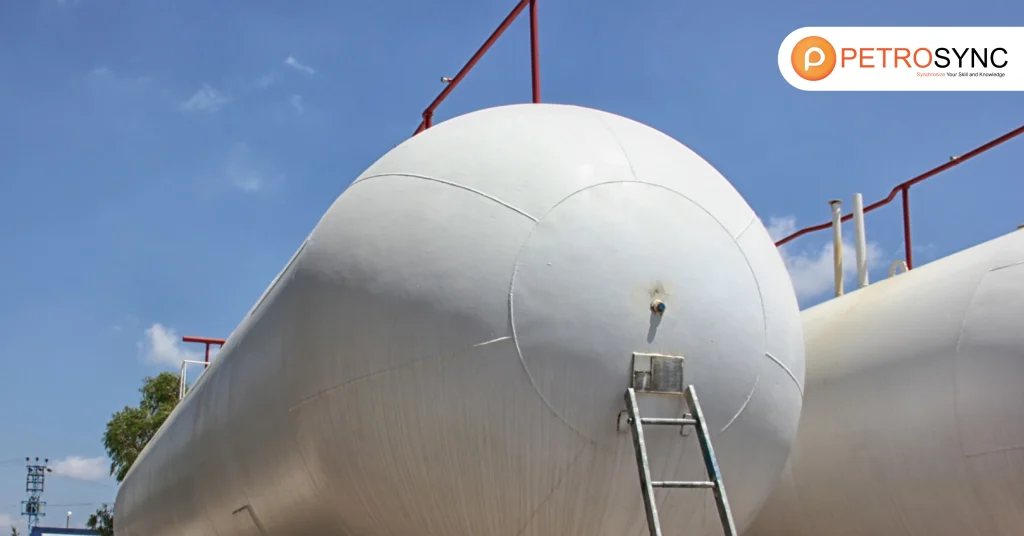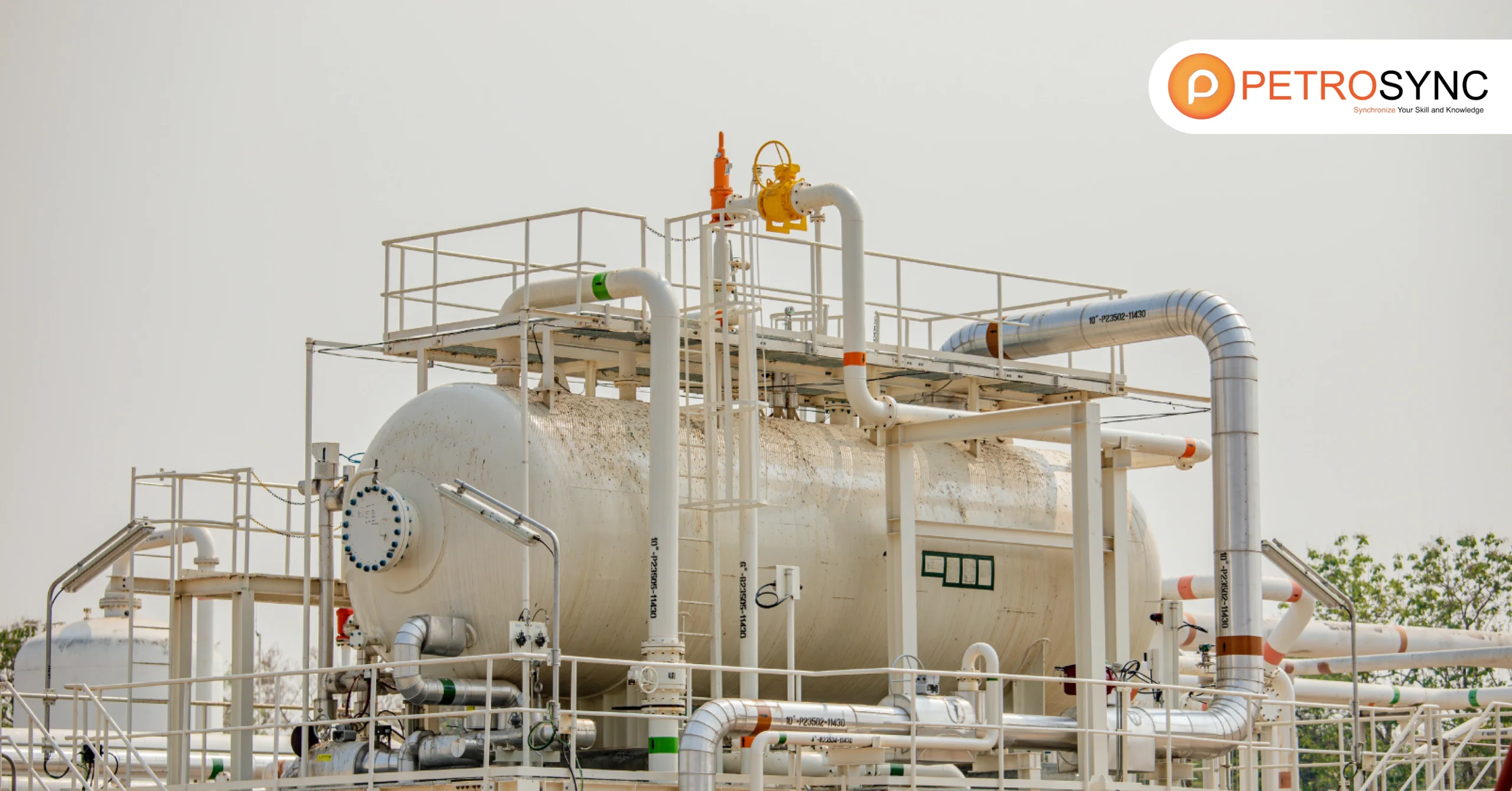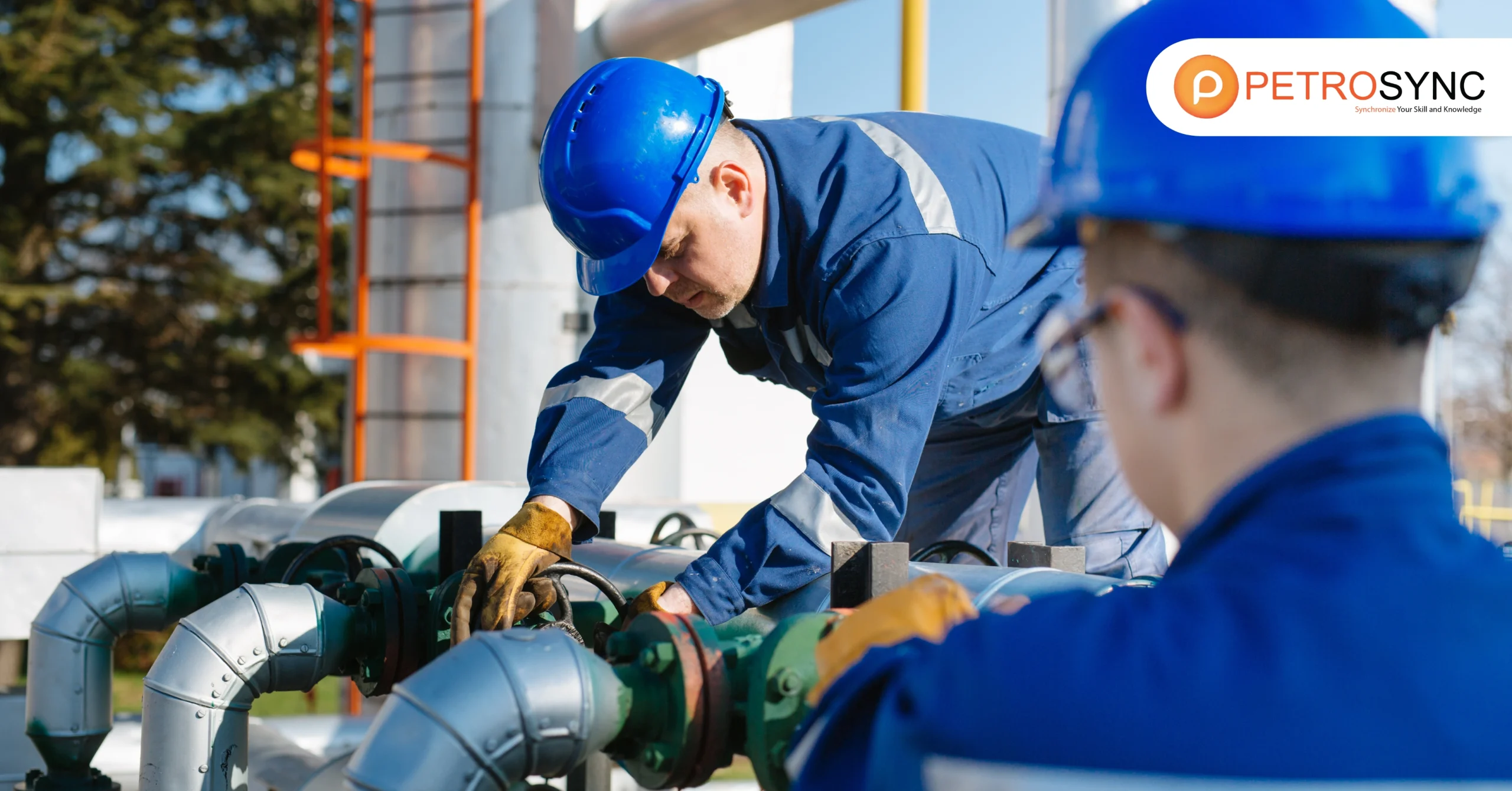API 510 is a standard issued by the American Petroleum Institute (API) that offers guidance and mandates for the examination, maintenance, modification, and integrity management of pressure vessels utilized in the oil and gas sector. API 510 ensures the safety and dependability of pressure vessels throughout their operational lifespan.
Within the industry, API 510 certification is highly respected as it shows an engineer’s comprehensive understanding of pressure vessel inspection, maintenance, and integrity management practices. PetroSync created this course to prepare professionals for the API 510 exam. This is a one-week intensive course with a strong emphasis on the use of codes and mathematical calculations.
API Certified Pressure Vessel Inspectors must have a broad knowledge base related to the maintenance, inspection, repair, and alteration of pressure vessels. API 510 Certification Preparation is designed to equip professionals with this information and understand the format of the exam.
This course will prepare professionals for both sections of the exam, the closed book portion and the open book portion. This is an intensive course with daily homework and a final exam (similar to the API 510 exam). A course outline is provided to guide participants before class.
What Is API 510 Training?

API 510 training is a specialist certification program for people who want to become pressure vessel inspectors, based on American Petroleum Institute (API) requirements. This course teaches participants to inspect, repair, and maintain pressure vessels, assuring safety, reliability, and compliance in industries such as oil and gas.
The training covers crucial areas such as damage mechanisms, inspection procedures, and the API 510 code’s regulatory framework. PetroSync offers a complete API 510 training program to professionals wishing to better their abilities and advance their careers. Our courses are designed to provide in-depth knowledge, hands-on experience, and professional coaching to help you prepare for the certification exam.
PetroSync is committed to assisting you in developing the competence required to confidently apply the API 510 requirements in your daily operations. Enroll with PetroSync today to open up new opportunities and become a qualified API 510 inspector.
What Is API 510 Latest Edition Update?
API 510, or Pressure Vessel Inspection Code: In-Service Inspection, Assessment, Repair, and Alteration, is an inspection code produced and published by the American Petroleum Institute. The code governs the inspection, repair, alteration, and evaluation of pressure vessels and the pressure relief systems that protect them.
The most recent version (11th) was released in October 2022. API 510, which was first published in 1958 as a recommended practice, is a guide for internal and external inspections, on-stream inspections, and thickness measurements of pressure vessels.
The code has developed over time to reflect technological advancements, changes in inspection techniques, and new methodologies. For example, in the 1990s, the code included a minimum requirement to use risk-based inspections as an alternative to traditional inspection planning criteria.
What Is API 510 Training Objective?
API 510 training course by PetroSync aims to enable you to proficiently inspect, repair, and maintain pressure vessels by the API 510 standard by equipping you with the necessary knowledge and skills. Our training course objectives are:
- Pass the API 510 pressure vessel inspector certification exam with success.
- Utilize major codes such as ASME B&PV Sections V, VIII, & IX effectively.
- Conduct all necessary basic vessel calculations required for the API exam, including minimum thickness, test pressure, the maximum allowable working pressure (MAWP), static head, minimum design metal temperature (MDMT), corrosion rates, remaining life, and more.
- Implement API’s requirements for the inspection, repair, and alteration of pressure vessels.
- Evaluate welding procedures (WPS/PQR) and qualifications of welders (WPQ) through careful review.
How Hard Is API 510?
API 510 certification is considered moderately challenging due to the technical knowledge required and the comprehensive nature of the examination. The training includes a wide range of topics, such as welding procedures, non-destructive testing (NDT), and a thorough comprehension of the API 510 code.
Candidates are also assessed on their abilities to calculate corrosion rates, remaining life, and conduct fitness-for-service examinations. The API 510 exam’s complexity is mostly determined on the candidate’s prior industrial experience.
For people with extensive hands-on experience with pressure vessels and relevant standards, the exam may seem more achievable. However, for individuals new to the area, the training can be rigorous, necessitating much study time and a mastery of numerous mechanical and technological principles.
What Is the Passing Score for API 510?
The API 510 certification test has 170 questions, and a passing score of 70% is necessary to be competent. The exam is divided into two parts: open-book questions that allow candidates to refer to applicable codes and standards, and closed-book questions that examine theoretical knowledge and practical applications.
To pass, candidates must not only understand the technical content, but also possess strong problem-solving abilities and the ability to apply the code in real-world circumstances. Passing the API 510 exam requires thorough preparation, including a comprehensive training program and hands-on field experience.
What Is API 510 Training Course Outline?
The outline of PetroSync’s API 510 training course is listed down below. For a more complete outline, you can refer to PetroSync’s API 510 Pressure Vessel Inspector training course details at PetroSync’s Website.
|
Day 1 of API 510 Training |
||
| Module 1 | Welcome and Introduction
Overview of API 510 Course |
|
| Module 2: Joint Efficiency |
|
|
| Module 3: Thickness Calculations |
|
|
| Module 4: Static Head |
|
|
| Module 5: External Pressure and Impact Testing |
|
|
|
Day 2 of API 510 Training |
||
| Module 1: Pressure Testing |
|
|
| Module 2: Weld Size For Attachment Welds at Openings |
|
|
| Module 3: Nozzle Reinforcement |
|
|
| Module 4: Scope of API 510 |
|
|
| Module 5 |
|
|
|
Day 3 of API 510 Training |
||
| Module 1: Inspection, Examination, and Pressure Testing Practices |
|
|
| Module 2 |
|
|
| Module 3 |
|
|
| Module 4: Interval/frequency and extent of inspection |
|
|
| Module 5: Inspection data evaluation, analysis, and recording |
|
|
| Module 6 |
|
|
|
Day 4 of API 510 Training |
||
| Module 1: Repairs, alterations, and rerating of pressure vessels |
|
|
| Module 2 |
|
|
| Module 3 |
|
|
|
Day 5 of API 510 Training |
||
| Module 1: API RP 576, Inspection of Pressure-Relieving Devices |
|
|
| Module 2 |
|
|
| Module 3 |
|
|
| Module 4: API RP 576, Inspection of Pressure-Relieving Devices |
|
|
| Module 5 (1 hour + 1 hour discussion) | Practice Examination-Open Book Practice Examination-Closed BookFeedback and Closing |
|
Is There Any API 510 Certification Issued by API?
Yes, there is an API 510 certification issued by the American Petroleum Institute (API). The API 510 certification is designed specifically for you to actively engage in the inspection, repair, alteration, and integrity management of pressure vessels in the oil and gas industry.
The certification confirms that you possess a thorough understanding of the applicable codes, standards, and practices associated with pressure vessel inspection and maintenance. PetroSync’s API 510 training course equips you with comprehensive instruction and guidance.
Our expert instructor possesses in-depth knowledge of the subject matter and will suffice you with the necessary skills, knowledge, and confidence to excel in the examination and beyond. Our training course covers all essential topics, including relevant codes, API standards, and best practices ensuring that you are well-prepared to handle the challenges of pressure vessel inspection.
Who Should Attend API 510 Training Course?
PetroSync’s API 510 training course will specifically benefit but not be limited to the Engineers, Supervisors, and Managers from the following disciplines:
- Mechanical Engineering
- Inspection
- Maintenance & Operations
- Technical & Engineering
- QAQC
Further, technical personnel with 2-3 years of experience in managing and planning inspection and maintenance activities for pressure vessel systems at upstream oil and gas facilities, refineries, process plants, and petrochemical facilities will also find this course highly beneficial.
Enhance Your Career with API 510 Training by PetroSync
By joining PetroSync’s API 510 Pressure Vessel Inspector training course, you will learn how to effectively assess pressure vessel conditions, identify potential issues, and make informed decisions to ensure compliance with industry regulations. If you plan to take the certification, participating in the API 510 exam without prior training can be overwhelming and may not yield optimal results.
We believe that investing in a thorough training course can provide a solid foundation and a competitive edge, significantly increasing your chances of success while gaining practical and fundamentals of pressure vessel inspection. Reserve your API 510 training spot and sculpt your skills regarding pressure vessel systems with PetroSync!

Results-oriented and thorough SEO specialist with extensive experience in conducting keyword research, developing and implementing digital website promotion strategies and plans, managing campaigns to develop company websites in the digital world, excellent knowledge of marketing techniques and principles, and attentive strong attention to detail.







